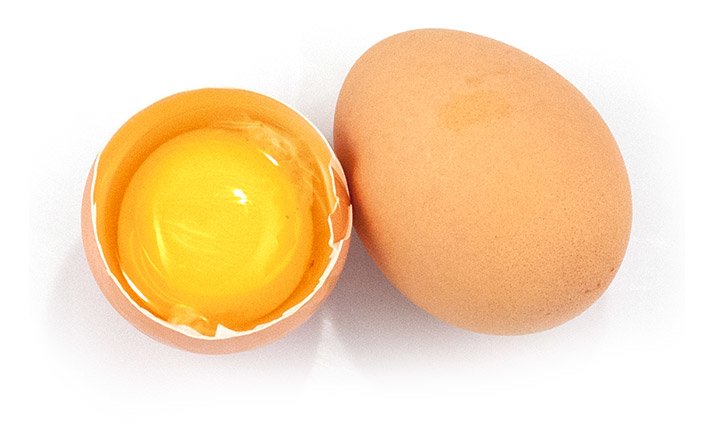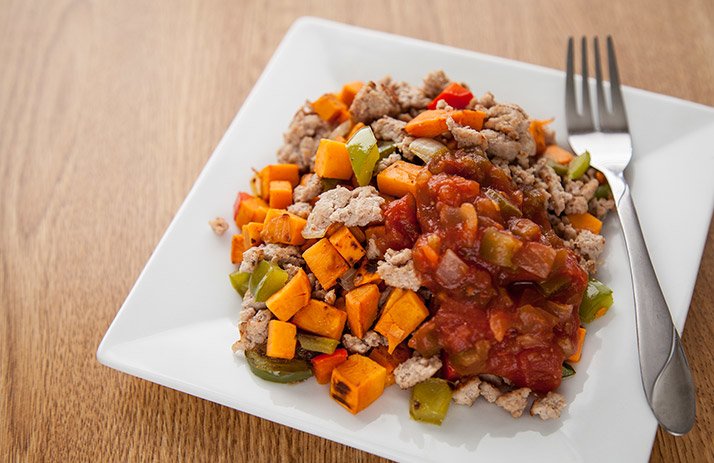
6 Common Breakfast Mistakes You’re Making
Is your breakfast—or lack thereof—hurting your fitness progress? The answer may surprise you.
Despite once being referred to as the most important meal of the day, not everyone agrees these days. Some people need breakfast to begin their day, as they rely on the cognitive-boosting, energy-enhancing benefits provided from breaking their fast. But many dieters interested primarily in fat loss, such as the intermittent-fasting crowd, laugh at the thought of consuming a traditional breakfast. Sure, they will eventually break their fast, but this will come much later in the day.
The biggest mistake related to breakfast is not considering your goals before deciding whether or not to forgo your morning meal. Too often, people aim for muscle growth but fuel for fat loss. On the flip side of the coin, some dieters target fat loss, but eat as if they're about to complete a triathlon.
Whether you're gorging for gains or fasting for fat loss, make sure you don't fall victim to one or more of these common breakfast mistakes!
1. Putting Excess Sugar and Creamer in Your Coffee
Starting the day with a caffeine kick can enhance focus, alertness and performance.1 Too much sugar and creamer, however, increases the number of calories, and the added sugar sets you up for an energy crash soon after.

Whether you need the energy for performance or are seeking a boost for your metabolism, excess sugar and creamer is sure to derail you from your goal. You may not be ready to jump straight to black coffee yet, but try limiting yourself to one sugar and one cream, or opt for sugar-free creamers. Trust us: In time, you'll grow to enjoy it.
2. Forgoing Hydration
It's highly unlikely you woke up frequently during the night to down a couple glasses of water. As a result, you probably woke up dehydrated. Even if you aren't thirsty, trust us, you need water! The body is about 75 percent water, and dehydration has several negative effects on both cognitive and physical performance.2
Start your day with 8-12 ounces of water upon waking—yes, even before you brush your teeth. This is especially important if you're training first thing in the morning, since being dehydrated by as little as little as 3 percent can reduce power output, increase your rate of fatigue, and increase your risk for injuries.3,4
3. Falling Victim to Catchy Marketing
The objective of food manufacturers is to sell as much of their products as possible. This means they will go to extreme lengths (within regulation) to encourage customers to purchase their items. Claims such as "as much protein as an egg," "low-sugar," and "gluten-free" run rampant among the packaged food sections, especially in the cereal aisle. But if you look closely, you'll notice that these products often times contain extra fat, added sugar to replace gluten, and incomplete protein sources (or soy) to boost total-protein content.

Take time to read the nutrition facts and ingredient list to make sure you're choosing an option well suited to your goals. If you're looking for extra protein, try adding an egg or a couple slices of turkey bacon to your morning dish. Need an even quicker fix? Add a scoop of your favorite protein powder to your oatmeal.
4. Making Catastrophic Carbohydrate Choices
Carbohydrates are a staple in breakfast foods. From pastries to pancakes, cereal to orange juice, carbohydrates are commonplace at the day's first meal. Be sure that you are choosing the right type to start your day!
Avoid feasting on carbs that are low in fiber and have high glycemic-index values. These fast-acting carbs digest rapidly, causing a significant reduction in energy levels shortly after consumption, and they don't fill you up as much as high-fiber carbohydrates.
Fiber slows down digestion and promotes fullness as well as long-lasting energy. So opt for whole-grain sources such as oatmeal, high-fiber cereal, or whole-grain bagels to start your day.
5. Swilling Fruit Juice for Breakfast
Juicing is certainly a "hot topic" of debate in the fitness world. While it provides ample opportunity to boost fruit and vegetable intake, it's not a sufficient breakfast on its own. Juice lacks fiber, ultimately promoting hunger and fatigue shortly after consumption. If you're still set on juicing or incorporating juice into your morning routine, pair it with protein and a high-fiber carbohydrate option.

6. Limiting Yourself to Breakfast Food Only
Where does it say you can't have chicken for breakfast? Too often, people lock into the mindset that they can only have "breakfast foods" upon waking, but having egg whites every morning, month after month, would become boring. Don't be afraid to include other lean proteins and whole-grain carbohydrates. Leftovers from the night before can make for an excellent start to the day. Or try out one of these tasty recipes below!
Breakfast Club Sandwich

Ground Turkey and Sweet Potato Hash

The Bottom Line
Consuming the wrong breakfast, or skipping out on this meal entirely, can keep you from achieving your performance and physique goals. Your mom was right when she said, "Breakfast is the most important meal of the day." Make sure you're taking advantage of it!
References
- Graham, T.E. & Spriet, L.L. (1995). Metabolic, catecholamine, and exercise performance responses to various doses of caffeine. Journal of Applied Physiology, 78, 867-74.
- Casa, D.J., Armstrong, L.E., Hillman, S.K., Montain, S.J., Reiff, R.V., Rich, B.S.E., Roberts, W.O. & Stone, J.A., National Athletic Trainer's Association Position Statement: Fluid Replacement for Athletes. Journal for Athletic Training, 35(2), 212-224.
- Davis, J. K., Laurent, C. M., Allen, K. E., Green, J. M., Stolworthy, N. I., Welch, T. R., & Nevett, M. E. (2015). Influence of Dehydration on Intermittent Sprint Performance. Journal of Strength and Conditioning Research, 29(9), 2586-2593.
- Savoie, F. A., Kenefick, R. W., Ely, B. R., Cheuvront, S. N., & Goulet, E. D. (2015). Effect of Hypohydration on Muscle Endurance, Strength, Anaerobic Power and Capacity and Vertical Jumping Ability: A Meta-Analysis. Sports Medicine, 45(8), 1207-1227.
